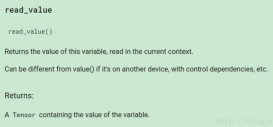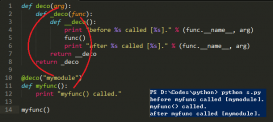下面介绍以threading模块来实现定时器的方法。
首先介绍一个最简单实现:
|
1
2
3
4
5
6
7
8
9
10
|
import threadingdef say_sth(str): print str t = threading.Timer(2.0, say_sth,[str]) t.start()if __name__ == '__main__': timer = threading.Timer(2.0,say_sth,['i am here too.']) timer.start() |
不清楚在某些特殊应用场景下有什么缺陷否。
下面是所要介绍的定时器类的实现:
|
1
2
3
4
5
6
7
8
9
10
11
12
13
14
15
16
17
18
19
20
21
22
23
24
25
26
27
28
29
30
31
32
33
34
35
36
37
38
39
40
41
|
class Timer(threading.Thread): """ very simple but useless timer. """ def __init__(self, seconds): self.runTime = seconds threading.Thread.__init__(self) def run(self): time.sleep(self.runTime) print "Buzzzz!! Time's up!" class CountDownTimer(Timer): """ a timer that can counts down the seconds. """ def run(self): counter = self.runTime for sec in range(self.runTime): print counter time.sleep(1.0) counter -= 1 print "Done" class CountDownExec(CountDownTimer): """ a timer that execute an action at the end of the timer run. """ def __init__(self, seconds, action, args=[]): self.args = args self.action = action CountDownTimer.__init__(self, seconds) def run(self): CountDownTimer.run(self) self.action(self.args) def myAction(args=[]): print "Performing my action with args:" print args if __name__ == "__main__": t = CountDownExec(3, myAction, ["hello", "world"]) t.start() |












